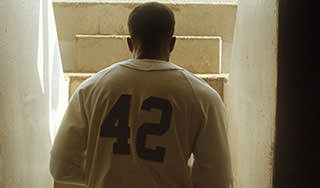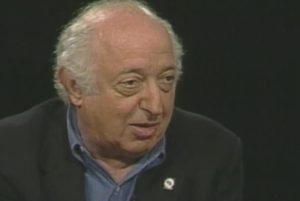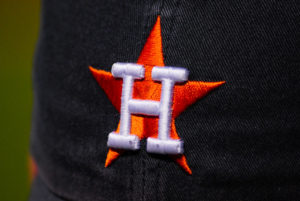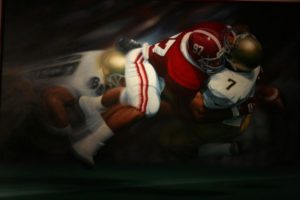Waiting for ’42’
Jackie Robinson’s story has been oddly neglected by Hollywood -- until now.Jackie Robinson’s story has been oddly neglected by Hollywood—until now.
Jackie Robinson’s story has been oddly neglected by Hollywood. There was an excellent low budget film in 1950, “The Jackie Robinson Story,” starring Robinson himself with Ruby Dee. Amazingly, it is still little seen outside of the black audience it was originally intended for. Blair Underwood played him in “Soul of the Game,” a fine 1996 TV movie about Robinson’s year in the Negro Leagues, with Delroy Lindo as pitcher Satchel Paige and Edward Herrmann as Dodger General Manager Branch Rickey. But 65 years after Robinson’s rookie season, his legacy remains largely literary. There are so many books on the subject — most notably “Baseball’s Great Experiment” by Jules Tygiel, Arnold Rampersad’s “Jackie Robinson” and, perhaps the most celebrated of all baseball books, Roger Kahn’s “The Boys of Summer” — they could fill a small library.
Considering that Hollywood has covered virtually every area of baseball, from the Little Leagues to potential for baseball-pitching chimps, it seems odd that it took the major studios so long to tell baseball’s most important story. Luckily, for a film about two men who came together to change not merely a sport but a country, director-screenwriter Brian Helgeland’s “42” does not take itself too seriously.
The actual baseball in “42” isn’t bad, much of it filmed at my hometown Rickwood Field in Birmingham, Ala., the oldest still-standing ballpark in the country, with period skylines and bleacher shots inserted. Most of the action in baseball movies is home runs and strikeouts — Europeans and others who don’t know the game probably wonder why all those men except for the pitcher and the batter are standing around doing nothing. Although “42” is more than respectful to baseball history, Helgeland has the patience to let the action develop, to give the viewer a chance to see why Robinson was such a great player and how he could unnerve opposing teams. During one sequence, he rattles a pitcher and draws a four-pitch walk, surely the first time in the history of movies a director allowed a batter as many as four pitches. Chadwick Boseman, an actor of superb physical grace, has clearly watched films of Robinson and faithfully emulates his jitterbug lead off first base, fingers fluttering and feet dancing in place. (You can see a bit of it in the video of his famous stealing home in the 1956 World Series, even though Robinson was 37 and near the end of his career. Watch Yogi Berra go ballistic for the first and only time in his career.)
Oddly enough, the incident in the film that has been met with the most skepticism over the years is something that probably happened exactly the way it is depicted in “42.” In a game in Cincinnati in 1947, in response to vicious heckling from the crowd, Dodger shortstop Pee Wee Reese, a native Kentuckian, walked over to Robinson, who was playing first base, and put his arm around him. Or that’s how the story goes. That this ever happened was stoutly disputed by a writer named Stuart Miller in an op-ed for The New York Times in 2007 titled “Breaking the Truth Barrier.”
“It’s a wonderful folk tale,” Miller wrote, “but likely only half-true. Robinson didn’t mention the incident in an autobiography published after his rookie year. And in a 1952 magazine interview and in his 1960 book, ‘Wait Till Next Year,’ he placed it in 1948, in Boston. … (In addition, the pitcher Carl Erksine has said he witnessed the moment, and he didn’t join Brooklyn until 1948.)” Well, Robinson may not have brought it up in an interview because he wasn’t asked about it or in his book because it was 13 years later, and Erksine may well have remembered it happening in 1948 because Reese either did it again or another Dodger player chose to put his arm around Robinson. But it happened.
In his 2007 book, “Opening Day: The Story of Jackie Robinson’s First Season,” Jonathan Eig writes that there was no account of Reese putting his arm around Jackie in any 1947 newspaper and points out, “No photos of the incident have ever been identified.” But as Kahn told me, it wasn’t likely that any paper would have run a picture or a mention because “American papers have always been notoriously slack about reporting matters of racial significance.” Kahn further noted that white-run newspapers even downplayed the importance of Robinson’s major league debut.
But at least one journalist who was there remembered it. Several years ago, Lester Rodney — “Press Box Red,” a reporter for the Communist paper the Daily Worker — recalled the gesture taking place in 1947. “I could kick myself,” he told me in an interview for The Village Voice, “for not having written about it at the time.” And he was positive that it happened in Cincinnati because “it was the only time all season that the Daily Worker sprang for expenses to send me on a road trip.”
There is a statue commemorating the moment outside MCU Park on Coney Island, the home of Brooklyn’s only professional baseball team, the Cyclones.Here are a few things that “42” won’t tell you:
In the film’s final scenes, Robinson wins the pennant for the Brooklyn Dodgers with — you guessed it — a home run. I wish Helgeland had not chosen to rewrite history for dramatic effect, not just because it makes Robinson seem like a slugger whom he really wasn’t, but it’s the one blatantly historically false moment in the movie. Robinson did hit a home run near the end of the season against the Pittsburgh Pirates, but the Dodgers lost. They didn’t actually clinch the pennant until four days later, on Sept. 22, when the Cubs eliminated the St. Louis Cardinals in a game that wasn‘t over until 11:30 p.m. Central time. The Dodgers, famously, woke up to find out they were the National League champions.
Why does Helgeland have it otherwise? Because the Pirates are the bad guys in the movie, the team with the most racist ballplayers. (The guys on the Dodgers who won’t accept a black teammate get traded there.) The pennant-winning home run silliness is both corny and misleading: Every team in the league had players as racist as Pittsburgh did.
For reasons not clear, Helgeland chooses to distort what happened to Robinson’s famous manager, Leo “The Lip” Durocher (smartly played by Christopher Meloni). While in bed with his movie actress soon-to-be wife — it must have been Laraine Day, since that’s whom Durocher married — he tells his boss, Rickey, that “Nice guys finish last.” Durocher never actually said it, but since everyone knew that’s how he felt, that’s OK. In the movie, baseball Commissioner Happy Chandler suspends Durocher for a year because of complaints about his public flaunting of morals; in fact Durocher was suspended because of his association with big time gamblers such as Ben “Bugsy” Siegel.
None of the film’s inaccuracies are offensive except perhaps the two instances where Robinson stands in the batter’s box, a look of awe on his face, watching his home run ball soar into the seats. He never did that. Watching your home run ball sail into the stands is an obnoxious modern habit that would have appalled the real Robinson. (Reggie Jackson may have been the first to do it.)
Regarding Rickey, he was, indeed, a great man, probably the most influential person in baseball history — more so than even Robinson himself. Harrison Ford, doing his most spirited work in nearly half a century in films, gives a portrait of Rickey that is multifaceted, at turns garrulous, shrewd and pious. When he finally centers on Robinson as the first black player he will bring to the major leagues, he tells his assistant with a gleam in his eye, “Robinson’s a Methodist. I’m a Methodist. God’s a Methodist!”
Rickey was all the things Ford plays him as and much more. “The Mahatma,” as he came to be known in the 1940s, would probably have been the key figure in baseball history even if he hadn’t brought Robinson to the big leagues. For one thing, he invented baseball’s farm system, through which minor league players are prepared for the majors. For another, he was responsible for spring training as we know it, converting an old military base in Vero Beach, Fla., into “Dodgertown,” where he implemented the first “Iron Mike” pitching machines and introduced guidelines and drills for players at each position. He was the first baseball executive — the first in any sport — to establish a system of tracking and evaluating players at the minor league level and was a remarkable judge of baseball talent with one notable exception. (In 1941, while with the St. Louis Cardinals, Rickey balked at paying $500 for a stumpy inarticulate young catcher named Lawrence Peter — later “Yogi” — Berra.)
Rickey was also, as team owner Bill Veeck (who would himself sign such black stars as Larry Doby and Paige) put it to me, “a sanctimonious skinflint, a Bible-thumping hypocrite, a shameless cheapskate.” While he blatantly nickel-and-dimed his players in salary negotiations, Rickey had a secret deal with the Dodgers that gave him a 10 percent commission on the sale of every player to another team. Today such a deal would be called a kickback.
Rickey’s life points to an aspect of the Robinson saga that is never really talked about. At the end of the film, Helgeland eulogizes Robinson, Rickey and Reese, among others, through still photos and captions with the dates on which they were enshrined in Baseball’s Hall of Fame, as if that was the end of the story. In fact, though it grieves the historian to point this out, the aftermath of their great triumph was marked by misfortune and loss.
Robinson never recovered from the terrible toll that being the first black player in the major leagues took on him. Old beyond his years at 37, he retired after the 1956 season. In one of the most wretched examples of disloyalty in the history of Major League Baseball, the Dodgers, owned by the same Walter O’Malley who would move them to Los Angeles two years later, was scheming to trade him to their bitter crosstown rival New York Giants.Robinson grew increasingly ill with diabetes and suffered two heart attacks, dying from the second one at his Stamford, Conn., home in 1972. He was only 53 years old. Although Major League Baseball had made much of his legacy, it took the organization until 1997, 50 years after his debut with the Dodgers, to retire his number for every major team. (The Yankees’ Mariano Rivera, the last player to be given the number, is the only one still wearing it.)
Robinson’s oldest son, Jackie Jr., was never able to handle the unfathomable burden of being the child of such a legend. He developed a drug problem and became alienated from his father. The two reconciled after Jackie Jr. entered rehab and began work as a drug counselor, and Robinson became a dedicated anti-drug crusader. Jackie Jr. was killed in an automobile accident in June 1972, four months before his father died.
Like Jackie, Rickey made his son a junior, and, with chilling irony, like Jackie, saw his son die before him. After working with his father for years in the Brooklyn and Pittsburgh organizations, Branch Jr. died in 1961 of complications from diabetes and hepatitis.
Just three years after Robinson joined the Dodgers, Rickey was squeezed out of his job by jealous part owner O’Malley and moved to the perennial cellar-dwellers, the Pittsburgh Pirates. Rickey retired in 1955, not staying long enough to see the fruits of his labor in the organization, which resulted in the 1960 Pirates world championship team. One of Rickey’s last acts as the Pirates’ GM was to steal away a young outfielder named Roberto Clemente from the Brooklyn Dodgers. Maybe God was a Methodist after all.
In “42” a terrific young actor, Andre Holland, plays Wendell Smith, the black sportswriter hired by Rickey, as he puts it to Boseman, to “be your Boswell.” In a discrimination as unjust as what Robinson was subject to, the real Smith was never able to write his own biography of Robinson, a book that surely would have told more of Robinson’s story from the inside than any other. Smith died in 1972, just a month after Robinson.
In perhaps the bitterest irony of all, one that Rickey never acknowledged and possibly never even understood, he did not believe — unlike Veeck — that Negro League team owners deserved compensation for the loss of their star players when they were called up. Unfortunately, most other major league owners felt the same way. Within a short time the Negro Leagues were stripped of their biggest box office attractions and withered and died. Just as egregious was that baseball’s gentleman’s agreement toward discrimination in hiring didn’t really change; only a handful of young players — the superstars of the 1950s such as Willie Mays, Henry Aaron, Ernie Banks, Frank Robinson, Elston Howard — were bought up while most of the older Negro League greats like Josh Gibson never played a single game in the majors.
Slowly during the 1950s and ’60s, in fact by the time Rickey died in 1965, baseball had begun to disappear from the inner cities, and a new generation of black youth became more enamored with professional football and basketball. The Brooklyn Dodgers left for Los Angeles in 1958, and it took 54 years for another professional team to come to Brooklyn, the NBA’s Nets.
Black and Latino kids, and white ones for that matter, see the statue of Jackie Robinson and Pee Wee Reese on Coney Island’s Surf Avenue without any knowledge of who the two men were and what their connection could possibly be to their own lives. Whatever its shortcomings, let’s hope “42” enlightens them.
Your support matters…Independent journalism is under threat and overshadowed by heavily funded mainstream media.
You can help level the playing field. Become a member.
Your tax-deductible contribution keeps us digging beneath the headlines to give you thought-provoking, investigative reporting and analysis that unearths what's really happening- without compromise.
Give today to support our courageous, independent journalists.





You need to be a supporter to comment.
There are currently no responses to this article.
Be the first to respond.